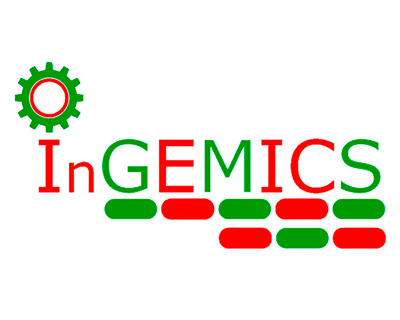Title: Ingeniería microbiana, salud y calidad de vida
Research Group: Evolutionary Genetics
The InGEMICSCM (Microbial Engineering, Health and Quality of LifeCM) Program aims to place the Community of Madrid as a technological and scientific reference in Quantitative Microbiology and Precision Medicine using the most innovative –omics and images technologies together with novel and powerful tools for data analysis and mathematical modelling and simulation. This innovative technological development will enable us to address some of the most important current challenges in Biomedicine: (1) the problem of controlling antibiotic resistance; (2) the understanding of the relevance of the Microbiome in Human Health and Pathophysiology; (3) the search for new biological activities and functions for pharmaceutical and biotechnological development and (4) the development of precision medicine with clinical, social and economic impact.
The expected results are: 1) the development of metagenomic, bioinformatics and biostatistics tools, as well as computational models of simulation to explore complex microbial communities (microbiomes); 2) the implementation of precision medicine models aimed towards preventive or diagnostic therapeutic interventions on altered biological systems; 3) the knowledge of the molecular basis of stress adaptation responses in microorganisms to identify potential antimicrobial therapeutic targets; 4) the development of a platform for genome edition as a conceptual basis for an authentic microbial engineering; 5) the construction of standardized tools for the quantification of biological phenomena such as antibiotic resistance and its evolution; 6) the development of techniques of quantitative image analysis to describe intracellular processes applicable to the search for novel therapeutic targets. In sum, besides contributing substantially to the advance of the scientific knowledge, this program will generate novel methodological resources that will be commercially exploitable and of potential translation to the biomedicine area.
Total amount: 1.037.199,82 €
Ref. B2017/BMD3691
María Molina Martín
Andrés Moya
Comunidad de Madrid. Programas de I+D en Biomedicina 2017.
Universidad Complutense de Madrid, Universidad Politécnica de Madrid, CSIC, Instituto Ramón y Cajal de Investigación Sanitaria and Universidad de Valencia.















